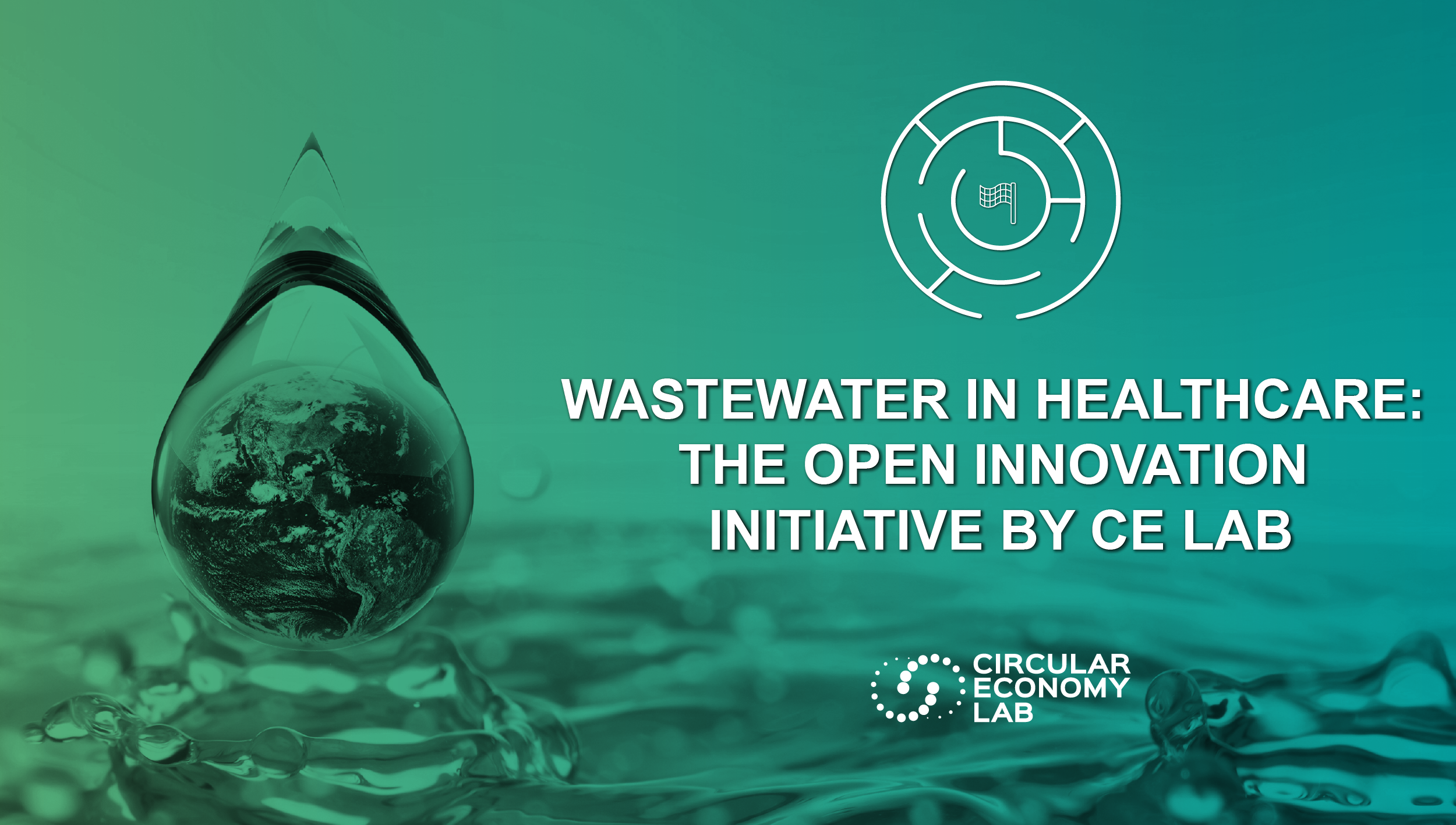
Wastewater in healthcare: the open innovation initiative by CE Lab
In a system based on the principles of a circular economy, the process of treating, separating, purifying, and recirculating wastewater takes on an important role: the substances contained in the water can be considered new resources to be reintroduced into circulation, enhancing what is currently considered a waste. Besides irrigation purposes, the circular use of water aims at the sustainable recovery of material and energy resources contained in wastewater, helping to reduce greenhouse gas emissions and the energy consumption of existing purifiers.
In particular, in the context of hospitals and analysis laboratories, this change of perspective is opening up new opportunities for improving environmental impact, cost savings and virtuous recovery of raw materials. Healthcare facilities, like any other production processes that involve the use of water resources, generate wastewater containing chemicals, medicines and biological agents that are contaminating and harmful to the health of the environment and humans.
According to data collected and analyzed by experts of the Circular Economy Lab, on average, in an Italian hospital, each bed generates 600 litres of wastewater daily (Majumder et al., 2020), and the antibiotic resistance acquired by bacteria in hospital water networks is two to ten times higher than in domestic wastewater (WHO, 2014). Among the contaminants in hospital wastewater emerge the so-called contrast agents, or contrast liquids, substances used in imaging diagnostics that help improve the quality of images in exams like CT and MRI scans, highlighting tissue details and possible lesions that would otherwise be invisible.
Between the end of 2023 and the beginning of 2024, the Circular Economy Lab of Intesa Sanpaolo Innovation Center and Cariplo Factory became the protagonist of an international initiative aimed at defining a scalable and replicable best practice for the recovery of contrast liquids and the management of hospital wastewater, through the implementation of processes that can become a model of innovation for the Italian and international healthcare sector, as well as for legislators and technological partners, in the management of hospital and laboratory wastewater.
The circular open innovation initiative, named Call4Circular | Circular Water 4 Healthcare, was promoted by SYNLAB and Bracco, in partnership with IRCCS Ospedale Galeazzi – Sant’Ambrogio (Gruppo San Donato), within the context of Federated Innovation @MIND, and created by the Circular Economy Lab.
The project has aroused significant interest both nationally and internationally, receiving numerous applications from startups and innovative SMEs from Italy (47% of the total), the rest of Europe (with the Netherlands leading at 8% of applications, followed by Germany, Spain, Sweden, Great Britain, Belgium, and Turkey), and from around the world (with 6% of applications coming from the United States, followed by Israel, Canada, Kenya, and Singapore).
The scouting of innovative companies with technological solutions lasted about three months, from November 2023 to January 2024, and focused on four main research areas, resulting in the following results:
- 46% of the applications proposed solutions for improving water quality, with particular attention to reducing the number of emerging contaminants (PPCP, viruses, bacteria, microplastics, antibiotics) in the hospital sector, thereby limiting their release into the natural ecosystem;
- 24% of the applications proposed solutions for water circularity, focusing on activating circular processes for water resources in order to recover and reuse them for activities such as irrigation or cooling machinery;
- 22% of the applications focused on water optimization processes, specifically on the efficient use of water resources in hospital and urban contexts;
- Finally, 8% of the applications concerned the collection of liquids, in particular urine, containing contrast agents used in X-ray and MRI exams.
At the end of the application collection phase, one-to-one sessions were held with the most interesting startups to explore potential synergies in depth. In this context, the role of the Circular Economy Lab was to guide and facilitate the identification of circular innovation needs, actively conduct detailed scouting on the identified topics, filter the startups to arrive at an initial selection tailored to the needs of each individual company promoting the call, until the drafting a collaborative use case. The top 8 startups were invited to participate in the final Demo Day to present their innovative solutions in the prestigious setting of the Mind Innovation Week.
In the coming months, partner companies and startups will continue their journey of mutual understanding with the aim of establishing new scientific, industrial and commercial relationships.